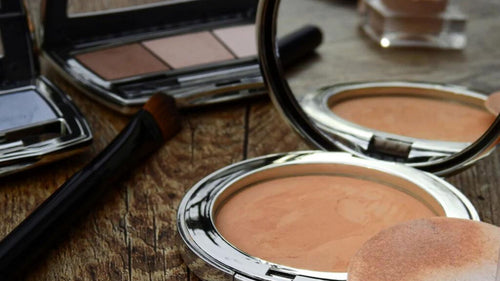SUBSCRIBE & SAVE 20%
FREE SHIPPING
Remember your password?
Subscribe to receive a guaranteed shipment of formula every month.
Enjoy a {{ discount_amount }} discount on products throughout your subscription.
Change or cancel your subscription at any time!


PFAS is a large group of highly fluorinated, synthetically produced substances that are very difficult to break down and thus long-lived in the environment. Sometimes PFAS are therefore called "perpetual chemicals" and these are found in a number of products and have become the subject of an intense debate in Sweden. Among other things, after having contaminated drinking water via fire protection foam in Blekinge, but also after recently discovered contamination in the fishing waters in Boden. And now most recently in the review of the cosmetics business that Aftonbladet highlighted.
PFAS is mainly used for its water-repellent properties, in products such as fire protection foam, water-repellent clothing and frying pans. Unfortunately, PFAS are also used in cosmetic products to make them last longer and improve their water resistance. They can be found in both waterproof mascara and foundation, but also in a range of other products such as face creams, face masks, eyeliners, hair oil, shaving cream, powder, serum and eye shadows. But the benefits come with a hidden cost.
PFAS can disrupt the body's hormone system, which can lead to various health problems. Exposure to PFAS has been shown to affect thyroid function, our reproduction and increase the risk of certain cancers. These effects can occur even at low exposure levels, which is common with daily use of cosmetics.




The environmental impact of PFAS is just as serious. These forever chemicals do not break down naturally and therefore accumulate in water, soil and living organisms. This accumulation can have extensive effects on ecosystems and affect human health through contaminated water and food for a very long time. In December 2023, the municipal water company in Ronneby was finally sentenced, after a long legal process, by the Supreme Court to pay damages to victims who ingested PFAS via the drinking water in the municipality. A relevant question is what responsibility do the companies that today and previously used PFAS in their products have, despite the knowledge that these substances are dangerous to health?
As early as the 1960s, animal studies conducted by 3M and DuPont showed that PFAS chemicals posed health risks. In the mid-1970s, 3M knew that PFAS was accumulating in Americans' blood. In the 1980s, both 3M and DuPont linked PFAS to cancer and found elevated cancer levels among their own workers.
Now the European industry body Cosmetics Europe (CE), and also the Swedish KoHF (Cosmetics and Hygiene Companies' trade association), have recommended that manufacturers of cosmetic products no later than December 31, 2025 should phase out and not market cosmetic products that contain intentionally added PFAS ( 1).But they are still in many products. In the review that Aftonbladet did in November 2023, it is written that most products with PFAS in the list of contents were found by the researchers in products from the French L'Oréal group. In an email reply to the newspaper, they state that they stopped using PFAS in 2020, but despite this there are still many products for sale where PFAS substances are listed among the ingredients. The company also states that it is difficult to say how long these products will remain on the market for sale. This is another aspect and downside of the traditional skin care industry that we want to highlight where large volumes can be produced as the shelf life of the products is often several years.
Read the article in Aftonbladet here.
How can substances that were already seen in the 60s to cause negative health effects in humans still be legal to use? These are questions that we wrestle with. We also have customers who contact us and ask if we have PFAS in our products. No, is the simple answer, we would never use these substances in our formulations. The big question is, how can one today, with the knowledge we have, wait until the end of 2025 to regulate PFAS use and continue to use it in their products?
This not only feels outdated, but downright irresponsible.
What do you think?